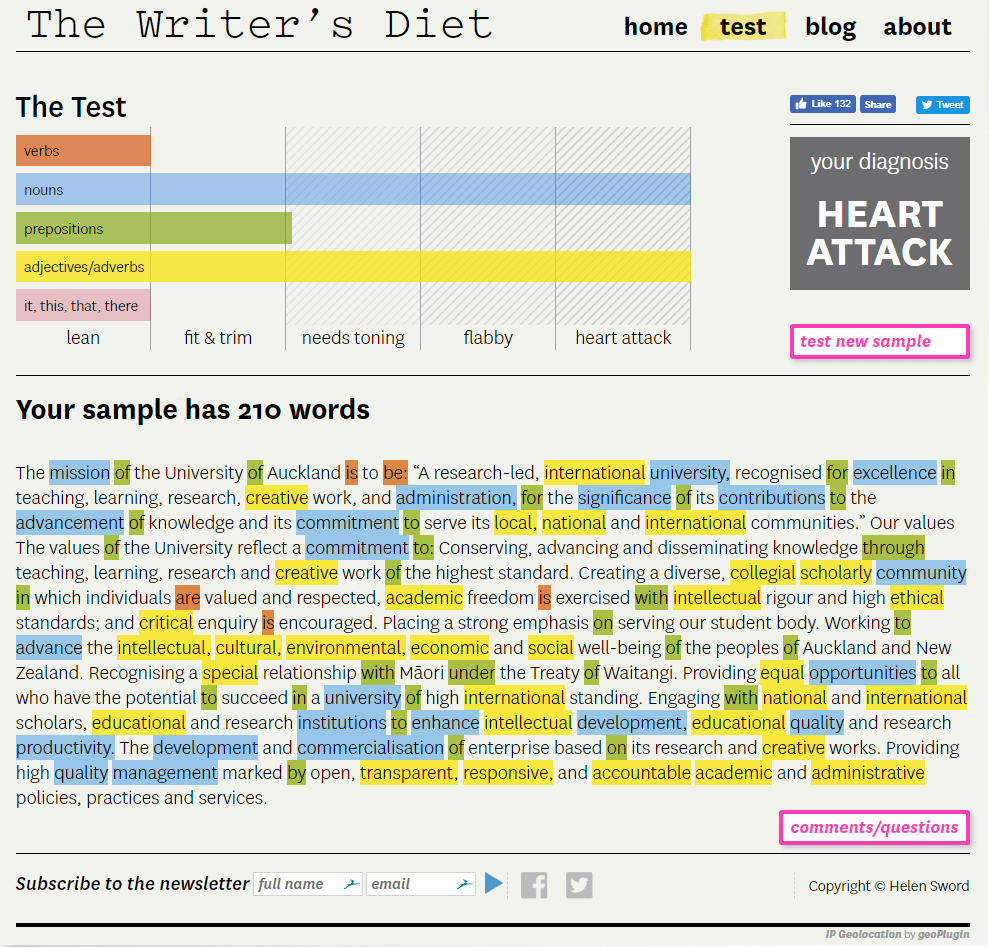The Writer’s Diet assesses university’s mission and values statement
Here is the diagnosis that The Writer’s Diet gave to the University of Auckland’s mission and values statement:
What can we learn from this result?
Mission statements rely on abstract language because they deal with abstract concepts, such as the company’s (or organization’s) beliefs, goals, philosophy, ideals, and ethical stance. Such statements broadly position the company’s work in relation to its values. As a result, they often use generic terms (e.g. “management,” “institution,” “commercialisation,” etc.) which necessitate the use of adjectives that have a more descriptive capacity.
The larger the company and the more diverse its area of work, the more likely it will have a generic mission statement, and vice versa. Due to their use of generic language, mission statements from the same industry often sound alike. The more companies use the same keywords (e.g., “excellence”), the less powerful these terms become.
The Writer’s Diet version available in 2019 was used in this experiment.
Text used in the experiment: University of Auckland’s Mission and Values statement, University of Auckland webpage.
